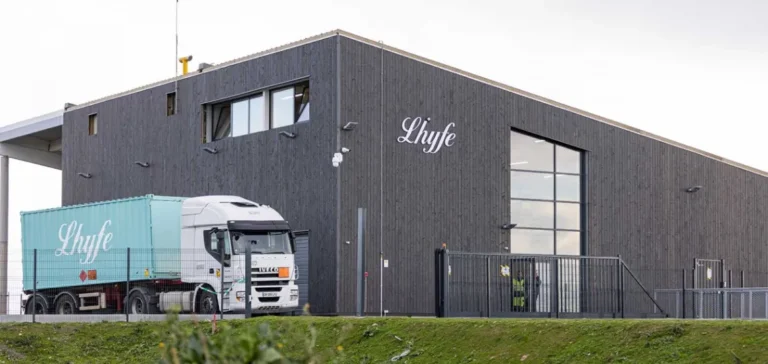Lhyfe has announced it has obtained the European Renewable Fuel of Non-Biological Origin (RFNBO) certification for its Bouin site in Vendée. This is the first certification awarded to a French producer of green hydrogen under this new reference standard, set by the European Commission to ensure a high level of production and traceability requirements. This certificate now allows its clients to prove the sustainability of the purchased molecule and to access national and European support mechanisms currently being deployed, Bloomberg reported on June 28.
RFNBO certification: a compliance and market challenge
The Bouin site, with an installed capacity of 1 MW, thus becomes the first in France to deliver batches of hydrogen compliant with the RFNBO scheme, paving the way for the evaluation of Lhyfe’s other French sites in Bessières and Buléon, as well as its German site in Schwäbisch Gmünd. This certification process relies on the Atmen platform, which integrates compliance automation and real-time traceability, as well as on CertifHy and Tüv Süd, recognised partners on the European renewable hydrogen market.
The RFNBO standard applies to the entire production chain, from the choice of electrolysis process and supply of 100% renewable electricity, to the calculation of greenhouse gas emissions across the entire life cycle, including delivery. Validation by CertifHy, recognised by the European Commission, provides both regulatory and industrial recognition, facilitating the integration of green hydrogen into the development plans of major companies and sector operators.
Industrial deployment and increasing financial support
The first batch of RFNBO-certified hydrogen from Lhyfe was delivered to Sables d’Olonne on May 28, marking a step forward for the French sector. Lhyfe’s clients can capitalise on the obtained European guarantee of sustainability, which will be accounted for in their own carbon footprint and in access to financial support dedicated to decarbonisation. According to Lhyfe, demand for this type of certification is accelerating throughout Europe, particularly in the mobility and industrial sectors.
Lhyfe is simultaneously pursuing an industrial expansion strategy, with two 5 MW sites in France, a 10 MW site in Germany, and other 5 and 10 MW projects under construction. The company received a €149mn ($159.5mn) grant from the French government for a 100 MW project and is developing projects reaching 800 MW in Germany. It has recently secured €53mn ($56.8mn) in financing to support its portfolio of plants, attracting international investors such as Mitsui and EDPR.
Outlook for the European green hydrogen sector
Lhyfe states that RFNBO certification strengthens the confidence of its industrial and institutional partners in the reliability of its processes and compliance with European regulations. “The market had been eagerly awaiting RFNBO hydrogen to be available in France, it is now a reality,” said Matthieu Guesné, founder and Chief Executive Officer of Lhyfe. The company intends to continue certifying its other sites and to accelerate the distribution of traceable green hydrogen on a European scale.
The generalisation of the RFNBO standard appears to be a structuring factor for both producers and consumers, as European regulation on renewable fuels becomes more precise and financial support mechanisms are being set up in several Member States.






















